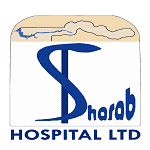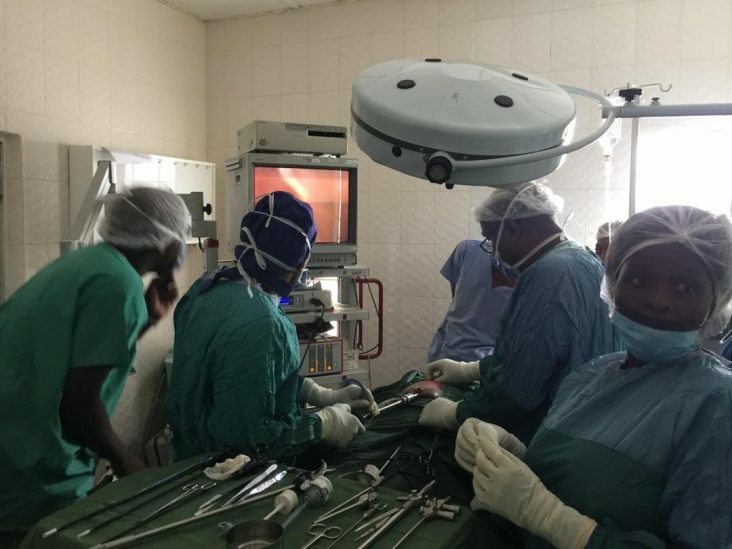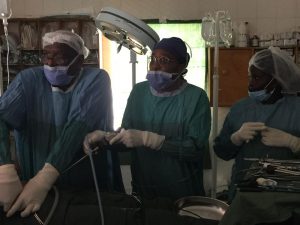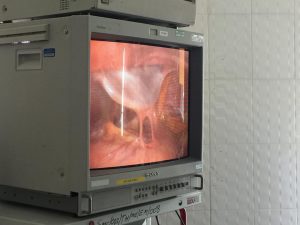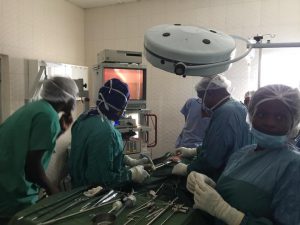Key hole (Laparoscopic Surgery), is the new trend in surgery. It is less traumatic for the patient and involves less blood loss, less pain and less hospital stay following the surgery.
A laparoscope is a narrow tube with a camera inserted through a small puncture through the skin. It allows the doctor to see the inside of the body on a screen and allowing the surgeon, using instruments inserted through similar ports, to do the surgery without the traditional big opening into the body.
One of the most common procedures performed this way is removal of diseased gall bladder which is a very common ailment. The gall bladder stores bile which helps in the digestion of fat (this is the bluish-green sac which stores a bitter substance often removed by the butchers before liver is ready for cooking). It can get blocked by stones formed in it causing abdominal pain, yellowness of the eyes, bloating and fever. When this happens the gall bladder needs to be removed to help the patient. The safest and least invasive way of doing it is through laparoscopic surgery.
Sharab Medical Center recently performed the first laparoscopic cholecystectomy (removal of the gall bladder) in the country on the 29th September 2018.
This was made possible, by the collaboration of our medical Director with two accomplished doctors working in the UK. Dr Rashid Abdallah is a Stroke Physician based in The UK who has been a friend of Sharab Medical Center for a long time and made available many of Sharabs pioneering equipment including this laparoscopic equipment. Dr Kamal Abussin, a highly experienced Transplant and Laparoscopic Surgeon based in the UK, came all the way to perform the landmark surgery and at the same time to refresh our medical director who is himself a trained laparoscopic surgeon but out of practice due to lack of equipment in The Gambia. The procedure was very successful and the patient was discharged the next day on 30th September 2018 which is less than 24hours after the procedure.
This procedure and other laparoscopic surgeries will now be routinely available in The Gambia at subsidized and affordable costs.
